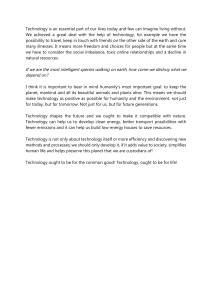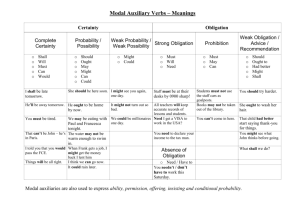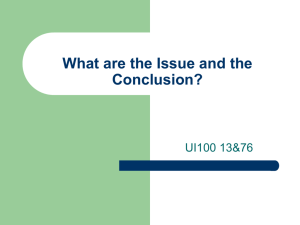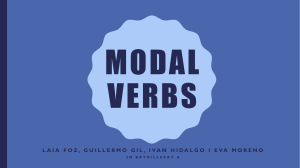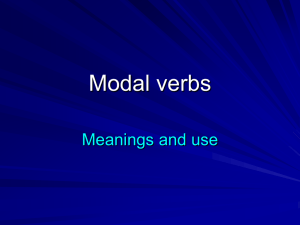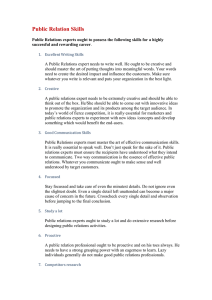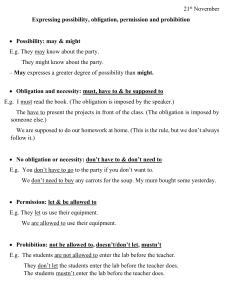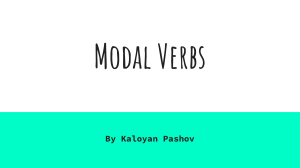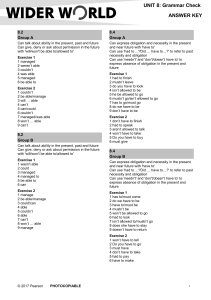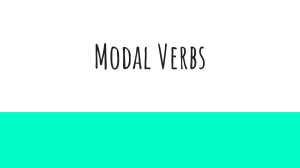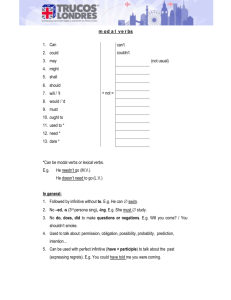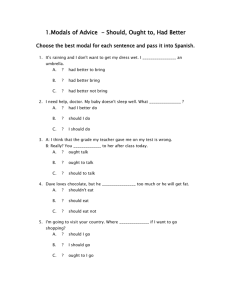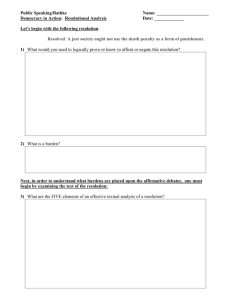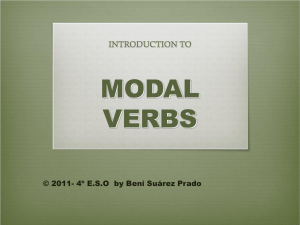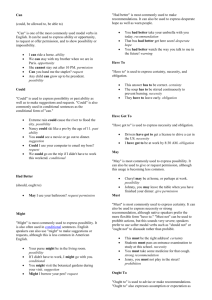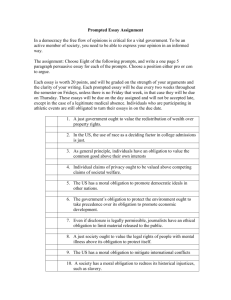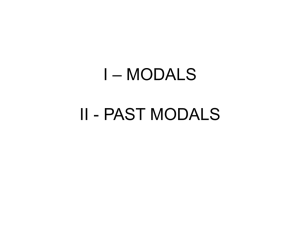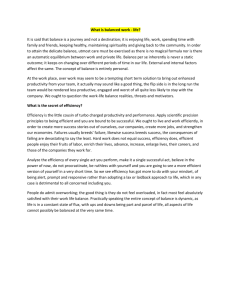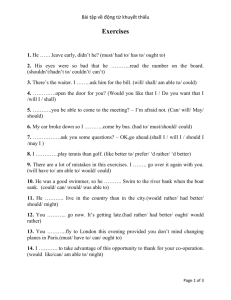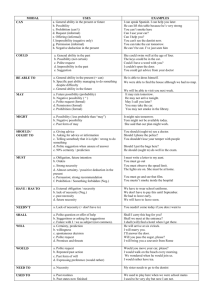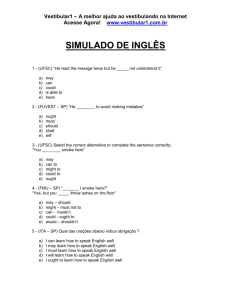Philadelphia National Schools Class:-----
advertisement
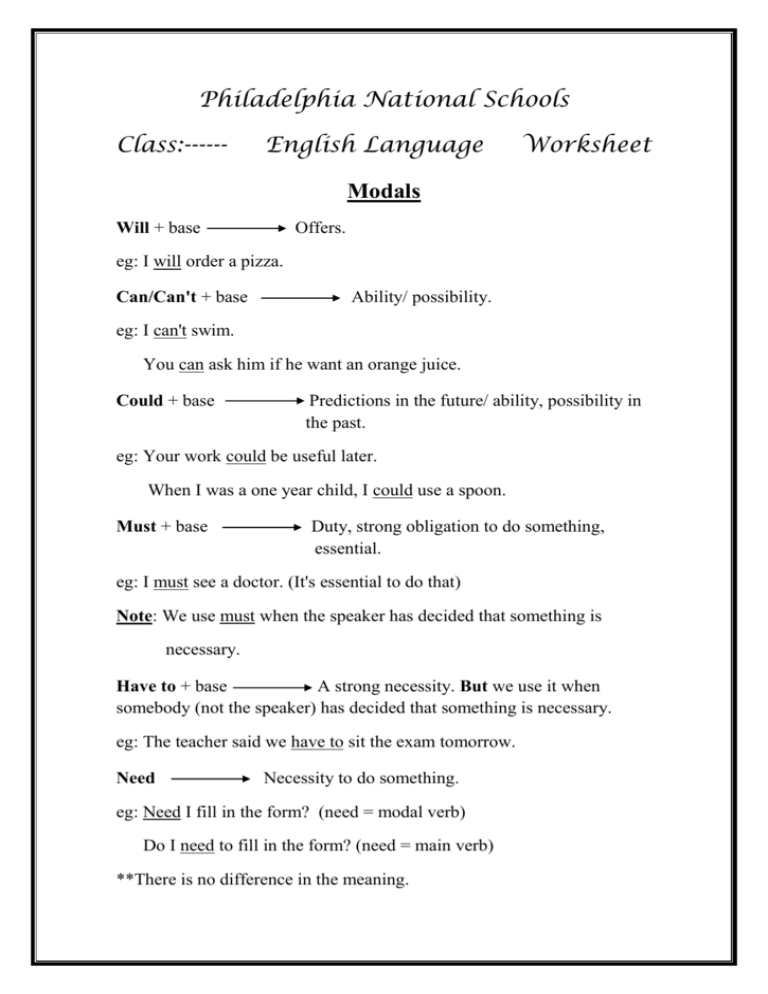
Philadelphia National Schools Class:------ English Language Worksheet Modals Will + base Offers. eg: I will order a pizza. Can/Can't + base Ability/ possibility. eg: I can't swim. You can ask him if he want an orange juice. Could + base Predictions in the future/ ability, possibility in the past. eg: Your work could be useful later. When I was a one year child, I could use a spoon. Must + base Duty, strong obligation to do something, essential. eg: I must see a doctor. (It's essential to do that) Note: We use must when the speaker has decided that something is necessary. Have to + base A strong necessity. But we use it when somebody (not the speaker) has decided that something is necessary. eg: The teacher said we have to sit the exam tomorrow. Need Necessity to do something. eg: Need I fill in the form? (need = modal verb) Do I need to fill in the form? (need = main verb) **There is no difference in the meaning. Should/ Ought to + base Weak obligation, advice. eg: We should/ ought to have the tyres checked. You should/ ought to make up with your sister. Mustn't/Can't/May not + base It's forbidden, it's against rules/ law. (prohibition) eg: You mustn't/ can't smoke in the hospital. *present deduction (guesses)* : 1. Must + base Sure that something is true/real, logical beliefs. eg: You have been working all day, you must be tired! (= sure) 2. Can't/Couldn't + base Impossibility. eg: That girl can't be Maha, she's at work. (= impossible) *Can/May/Could + base Asking permission. eg: Can I open the door please? *Could/May/Might + base Possibility. eg: You should keep that ring, it may be valuable one day. *Could/Might/Would + (have+v3) Possibility in the past. eg: She might have moved house. Could/Should/Might/Ought to + (have+v3) Criticism for past actions. eg: She could have cooked before her husband's arrival. He's very angry now. Rana Abdellatif
